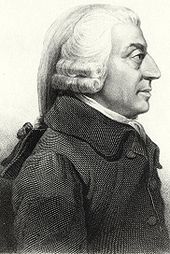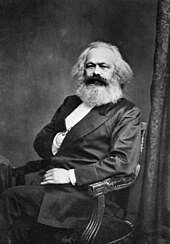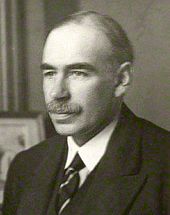Economic theory
An economic theory is each of the hypotheses or models that seek to explain the functioning of economic reality.
Microeconomics and Macroeconomics
In economic theory, two different approaches are usually distinguished:
- Microeconomy studies the economic behavior of individual agents, such as consumers, companies, workers and investors, as well as their interrelationship in markets. Consider the decisions you make to meet your own goals. The basic elements of microeconomic analysis are goods, prices, markets and economic actors.
- Macroeconomy, the macroeconomy is the part of the economic theory that is responsible for the general study of the economy, through the analysis of the aggregate variables such as the total amount of goods and services produced, the level of employment, the balance of payments, the type of change and the overall behavior of prices.
There are also other disciplines related to economics that have broadened or deepened the field of economics:
- Mathematical Economy
- Economic policy
- Political economy
- Public policies - Public administration
- Social economy
- Green economy
History of economic theories
Traditionally, economic theories focused on issues such as currency, international trade, and the production of goods. Later, new topics such as the business cycle, equilibrium theory, inflation, savings, investment, and other macroeconomic aspects were introduced. Currently, the economy tends to incorporate new situations related to the theory of choice and the way in which partially rational economic agents make decisions based on incentives and expectations, which can be of any type (material or non-material). [citation required] Each theory indicates which are the main components of the economic system, how each one works in isolation, as well as how they all work together.[citation required]
Schools of Thought
The evolution of economic theory has been linked to the type of frequent economic problem of each historical moment, typical in theorizing. Each school considered a type of frequent problem and developed a line of thought that tried to explain the typical economic problem of the moment. Some economic theories are:
Pre-classical schools
- The school of Salamanca (centuryXVI), their representatives are: Francisco de Vitoria, Domingo de Soto, Luis de Alcalá, Martín de Azpilcueta (o Azpilicueta), Tomás de Mercado and Francisco Suárez.
- The commercialists (siglos XVI – XVII): were based on the wealth of the factors of production and as such they were considered: labour, natural resources and capital;
- The physiocrats (the French school of the century)XVIII(i) They were based on the land;
Classical schools
- Classical school: The parents of what we currently know as “capitalism” are Adam Smith, David Ricardo, Thomas Malthus, Jean-Baptiste Say and John Stuart Mill. They continue to develop the thesis of the physiocrats although this already during the course of the centuryXIX. They take up the principle of "laissez faire, laissez passer" (let it be done, let it pass) bringing it to its maximum potential: the free market economy, which means the non-intervention of the government in it. They claimed that the accumulation of the wealth of nations is due to the absence of state regulations leading to a market economy with a strong predominance of the law of supply and demand.
Marxism
- Marxism: based on the thought of Karl Marx and his fundamental work Capital is concentrated in the study of production, value (with the theory of value-work) and the economic circuit;
Early Neoclassical School
- Marginalism, sometimes called first neoclassical school, was initiated among others by Carl Menger, Léon Walras, W. S. Jevons and Alfred Marshall; began the rigorous study of microeconomy;
Keynesianism
- Keynesian school, initiated by John M. Keynes, noted certain macroeconomic criticisms of the predicted behaviour of national economies from a marginalist point of view;
Austrian School
- The Austrian school opposes the use of the methods of the natural sciences for the study of human actions, and prefers to use deductive logical methods and introspection, which is called methodological individualism; developed from Human actionLudwig von Mises.
Neoclassical schools
- Neoclassical school is a synthesis of the marginalist school approach with keynesianism, in what was called neoclassical synthesis; John Hicks was one of the main initiators of this current; it remains the predominant approach of most of the educational manuals of economy;
- Both monetarism, a supporter of a reduction in state intervention (a development from the Keynesian macro economy and the Chicago School and a moderate liberalism),
- as postkeynesianism (a heterodox development based on Keynes' ideas, M. Kalecki and the Saraffians) constitute divergent developments from a basic body based on the synthesis of neoclassical school.
Modern Monetary Theory
- The 'modern monetary theory' or 'neocartism' is an economic theory that describes and analyzes modern economies in which the national currency is a fiduciary currency, or money fiat, issued by the State and legal and forced course. The key point of the TMM is that "a monetaryly sovereign state is the monopoly supplier of its currency and can issue currency of any denomination in physical or non-physical forms. As such, it has an unlimited capacity to pay the goods you want to buy, meet the promised payments in the future, and has an unlimited capacity to provide funds to the other sectors, so the insolvency and bankruptcy of this state is not possible, it can always pay."
Other economic schools
- Cartalism
- Heterodox economy
- New institutional economy
Classification of theories by some authors
For the British Marxist economist Michael Roberts there would be two major ideological models of the economy:
- Neoclassical and marginalistic models of general equilibrium. They are the majority and dominant models usually attached to the political and economic right;
- Radical heterodox economy: postkeynesians, institutionalists and even Marxist models. They are the minority models usually attached to social democracy and the political and economic left.
Contenido relacionado
Business Administration
Public spending
Takeover bid


